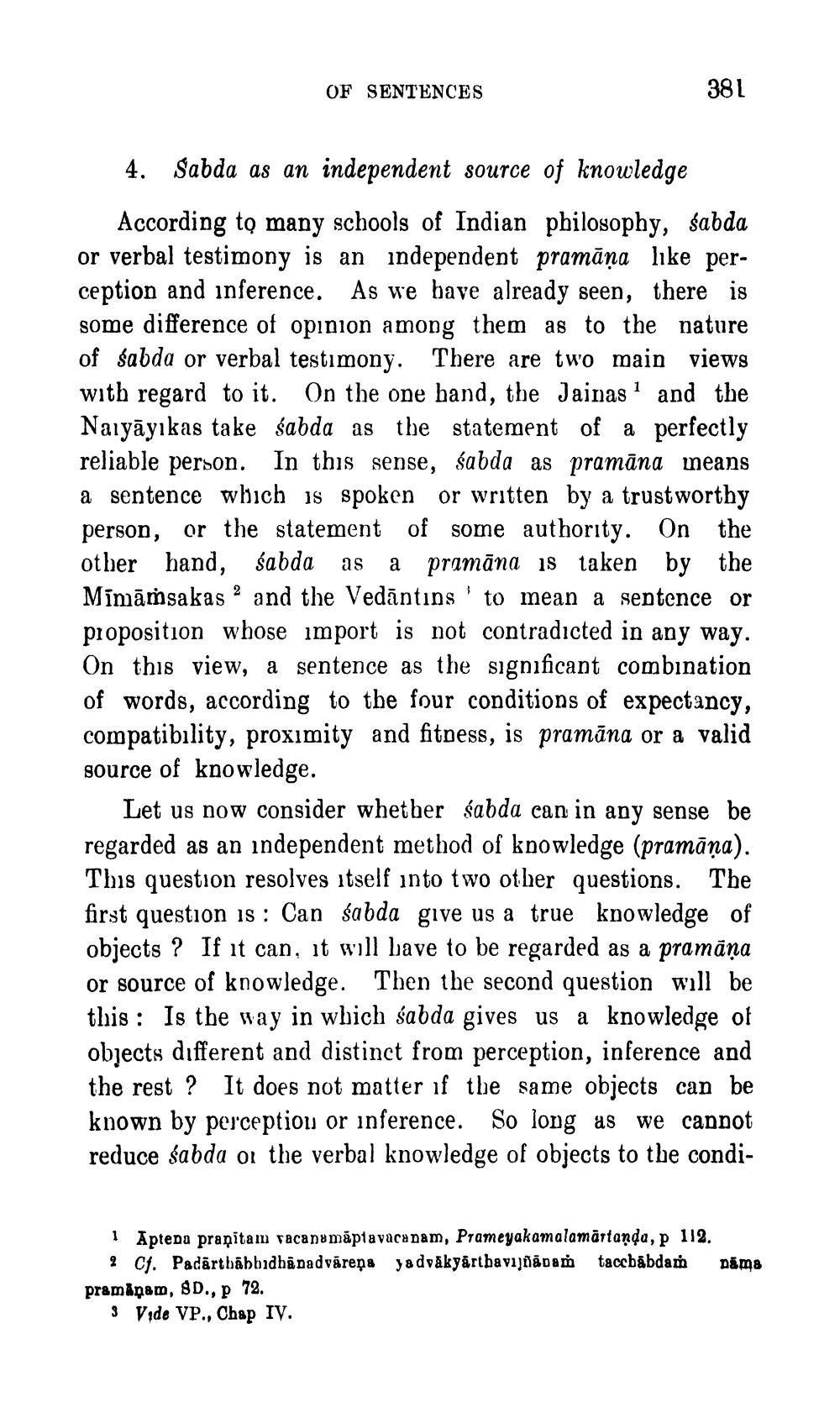________________
OF SENTENCES
381
4. Sabda as an independent source of knowledge
According to many schools of Indian philosophy, śabda or verbal testimony is an independent pramāņa like perception and inference. As we have already seen, there is some difference of opinion among them as to the nature of sabda or verbal testimony. There are two main views with regard to it. On the one hand, the Jainas and the Naiyāyıkas take sabda as the statement of a perfectly reliable person. In this sense, śabda as pramāna means a sentence which is spoken or written by a trustworthy person, or the statement of some authority. On the other hand, sabda as a pramāna is taken by the Mināmsakas 2 and the Vedāntins' to mean a sentence or proposition whose import is not contradicted in any way. On this view, a sentence as the significant combination of words, according to the four conditions of expectancy, compatibility, proximity and fitness, is pramāna or a valid source of knowledge.
Let us now consider whether sabda can in any sense be regarded as an independent method of knowledge (pramāņa). This question resolves itself into two other questions. The first question is: Can sabda give us a true knowledge of objects? If it can, it will lave to be regarded as a pramāņa or source of knowledge. Then the second question will be this : Is the way in which sabda gives us a knowledge of objects different and distinct from perception, inference and the rest ? It does not matter if the same objects can be known by perception or inference. So long as we cannot reduce śabda on the verbal knowledge of objects to the condi
1 Aptepa pranitam vacano māptavacanam, Prameyakamalamäntanda, p 112.
2 Cf. Padartbābbidhāpadvāreņa yadvákyårtbavijitādam tacebabdana Dáms pramanam, SD., p 72.
3 Vide VP., Chap IV.
Podarbábbidbanud




